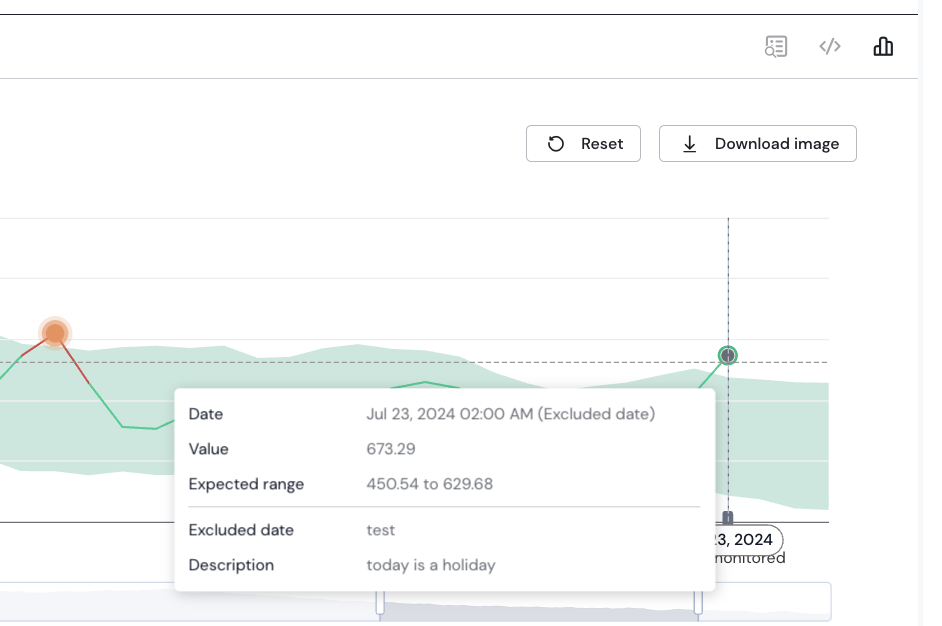Special Dates Handling
Overview
There are often scenarios where businesses can expect anomalous data, whether these days are holidays or simply days relevant to a business' operation. In these cases, monitors can be expected to generate noise, detecting anomalies despite previous knowledge of the reason it.
Special Date Calendars
Special Dates calendars are available when configuring a monitor to ensure no anomalies are reported for the timeslots included in the calendar.

Readily-Available Calendars:
Public Holiday Calendars
- Belgium public holidays
- France public holidays
- Germany public holidays
- Netherlands public holidays
- Spain public holidays
- United Kingdom public holidays
- United States public holidays
End of Week Calendars
- Weekends: Ignore Alerts on Weekends
- Sundays: Ignore Alerts on Sundays

Excluded Dates will be displayed on the graph to explain why no anomaly was detected
Custom Calendars
Custom Calendars can be added via APIs. For more information please check the Interactive API reference
The API for creating calendars takes a name and description parameter for documenting the calendar as well as an array of timeslots.
Timeslots will contain a date and a description that will appear in the catalog.
curl --request POST \
--url https://tenant.siffletdata.com/api/v1/calendars \
--header 'accept: application/json' \
--header 'authorization: Bearer <apikey>' \
--header 'content-type: application/json' \
--data '
{
"description": "days where the data will be different!",
"name": "my cool calendar",
"timeslots": [
{
"date": "2024-07-24",
"description": "today is a holiday"
}
]
}
'import requests
url = "https://tenant.siffletdata.com/api/v1/calendars"
payload = {
"description": "days where the data will be different!",
"name": "my cool calendar",
"timeslots": [
{
"date": "2024-07-24",
"description": "today is a holiday"
}
]
}
headers = {
"accept": "application/json",
"content-type": "application/json",
"authorization": "Bearer token"
}
response = requests.post(url, json=payload, headers=headers)
print(response.text)Updated 3 months ago
